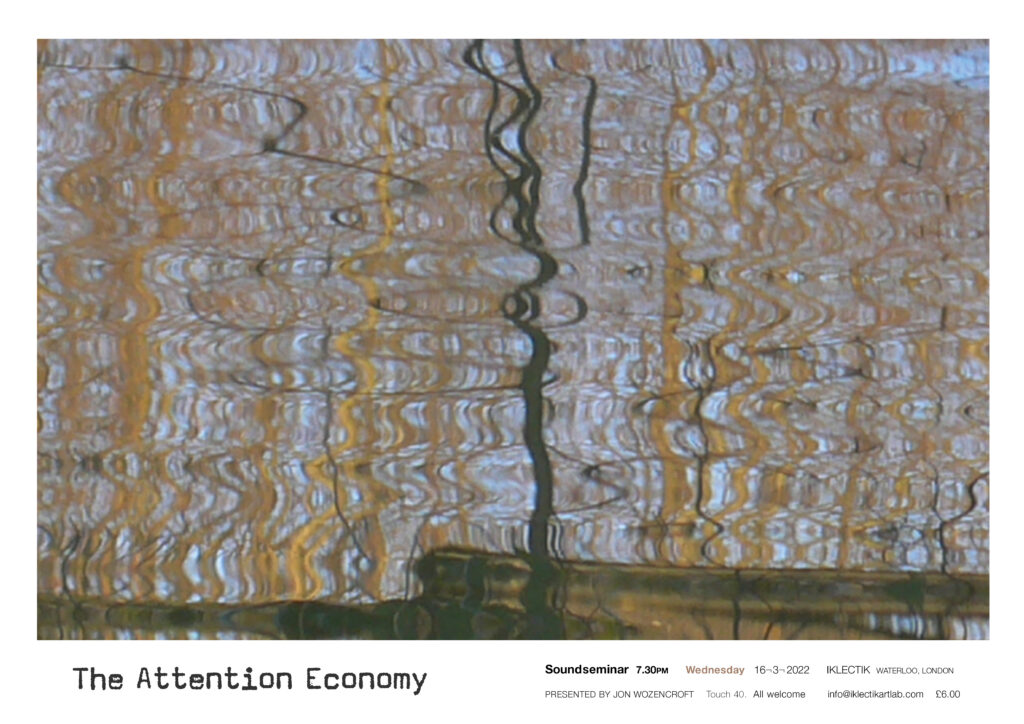
To give your full attention to someone or something is an act of generosity and love that is at the heart of dynamic communication, where listening is as vital as speaking and quiet counsel as significant as sending. Attention, however, is beset by the negative associations of one’s schooldays – “Pay attention!” – and then its military context, “Stand to attention”, indicating its close relationship to hierarchical barriers that simply foster boredom and distraction and then apathy.
The attention economy was first theorized by the political scientist Herbert A. Simon in 1971, sensing that the tendency towards information overload would create a ‘rabbit in the headlights’ paralysis amongst the general public. “What information consumes is rather obvious: it consumes the attention of its recipients”, he wrote. “Attention transactions” would replace financial transactions as the focus of our economic system, and especially in the worlds of politics, advertising and social media, so it came to be.
Intangible factors became paramount to the processes of promotion and distribution, namely immediacy, personalisation and free accessibility. “Attention economics” forms a potential consumer’s attention as a resource – advertisers follow a model they called AIDA – Attention, Interest, Desire and Action. Attention is therefore the first stage in the process of converting non-believers and non-consumers. There is no time to digest, only to react, or not.
Progressively this directive takes over all aspects of media communication, bringing us to the current conditions of widespread disinformation and its supposed remedy, the digital detox. If “ignorance is bliss”, in its latest guise, ignorance becomes essential for maintaining a certain level of mental health.
Disinformation fosters conspiracy theories, anxiety, incredulity with the dangerous outcome that nobody believes anything anymore, or could that be the opposite?… Extremism emerges as the only way of attracting attention.
How this is reflected in music/culture is less clear cut. Between the necessary hook of a pop song and the immersive spaces of drone music, Pauline Oliveros’s advocacy of ‘deep listening’ is becoming ever more crucial in the current climate.










